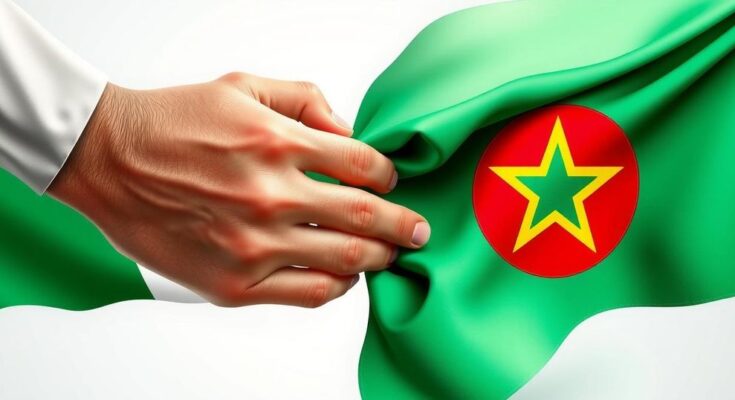Somalia and Ethiopia have agreed to restore diplomatic ties after over a year of tensions caused by Ethiopia’s agreement with Somaliland. This historic development follows mediation by Turkey’s President Erdoğan and emphasizes renewed commitments to bilateral relations, particularly in combating al-Shabaab. The agreement also aims to address issues surrounding Somaliland’s status and Ethiopia’s port access aspirations.
Somalia and Ethiopia have formally agreed to restore their diplomatic ties, which were severed over a contentious sea access agreement involving the self-declared Somaliland region. Following a significant meeting in Addis Ababa, attended by Somalia’s President Hassan Sheikh Mohamud, both nations committed to enhancing their bilateral relations through re-establishing full diplomatic representation in their capitals. This development marks progress after a year-long rift stemming from Ethiopia’s memorandum with Somaliland, which Somalia perceived as an act of aggression. The agreement aims to rectify strained relations and facilitate improved cooperation against common security threats, particularly in the fight against al-Shabaab, the militant organization active in Somalia.
This announcement follows previous tensions that had escalated over Ethiopia’s growing relationship with Somaliland, which unilaterally declared its independence in 1991. The recent agreement is believed to be a result of mediation by Turkish President Recep Tayyip Erdoğan, aimed at fostering dialogue and collaborative governance between Somalia and Ethiopia. Also, this meeting aligns with ongoing discussions among regional powers, including Egypt, which seeks to maintain strategic control over the Red Sea and limit non-coastal nations’ military presence near its waterways. As both countries navigate their historical grievances and current geopolitical landscapes, this diplomatic rapprochement holds significant implications for future regional stability.
The relationship between Somalia and Ethiopia has been complex, influenced by geopolitical interests and historical tensions. The core issue lies with Somaliland, a region that declared independence from Somalia in 1991 but remains unrecognized by the Somali central government and the international community. A recent memorandum between Ethiopia and Somaliland, allowing Ethiopia access to port facilities and acknowledging Somaliland’s autonomy, incited strong reactions from Somalia, threatening to escalate into conflict. The diplomatic breakdown has not only affected bilateral relations but also posed challenges for security cooperation, especially concerning the fight against al-Shabaab. The initiation of dialogue, facilitated by Turkish mediation, indicates a potential shift toward resolving these longstanding differences.
In summary, the restoration of diplomatic ties between Somalia and Ethiopia signifies a pivotal moment in East African relations. Both nations have shown a commitment to engage constructively following a protracted period of discord. This development is designed to enhance bilateral cooperation, particularly in security matters concerning the militant group al-Shabaab. As the leaders work towards resolving their disputes amicably, the regional dynamics surrounding Somaliland’s independence and Ethiopia’s naval ambitions remain an area of keen observation.
Original Source: www.theguardian.com




